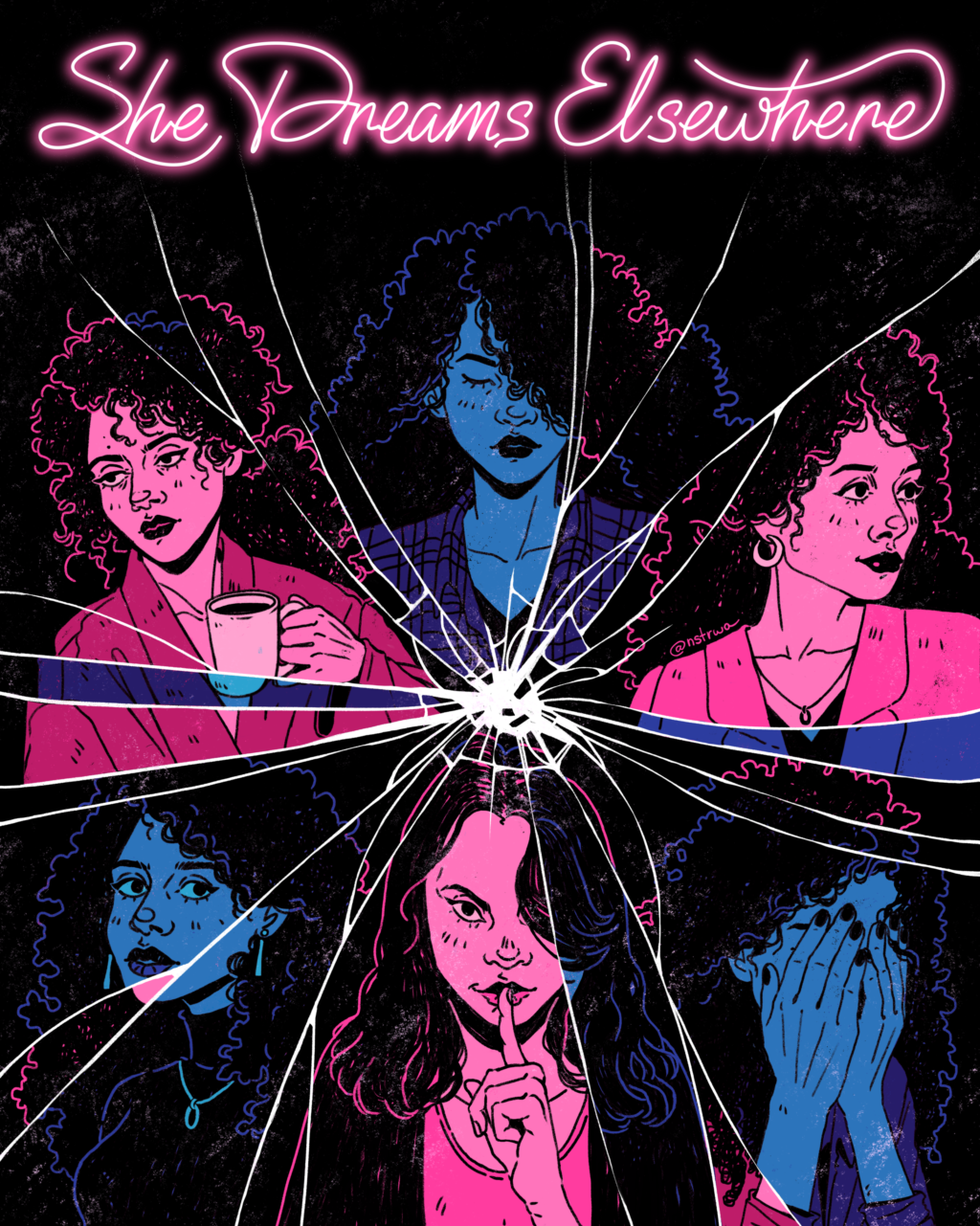
Provided by Studio Zevere
The Excellence of She Dreams Elsewhere Shows a Great Need for More Black Horror Devs
I was first introduced to the She Dreams Elsewhere demo and its protagonist Thalia by a black former co-worker. He had been profoundly touched by her visceral struggles with mental illness, both in the real world and personified in the bleak and moody dungeons of Oblivion.
Her identity and the subject matter of her struggles alone are groundbreaking enough, as it acknowledges that black people — black women in particular — can be affected by mental illness. Something not even acknowledged in real life let alone ever seen in a video game.
She Dreams Elsewhere is unlike any other game I had played before in that regard and more. The black culture is absolutely palpable and authentic in ways that clearly reflect the creator. Effortlessly, it fills a void among horror games, shouts in a scant few hours that its existence is necessary.
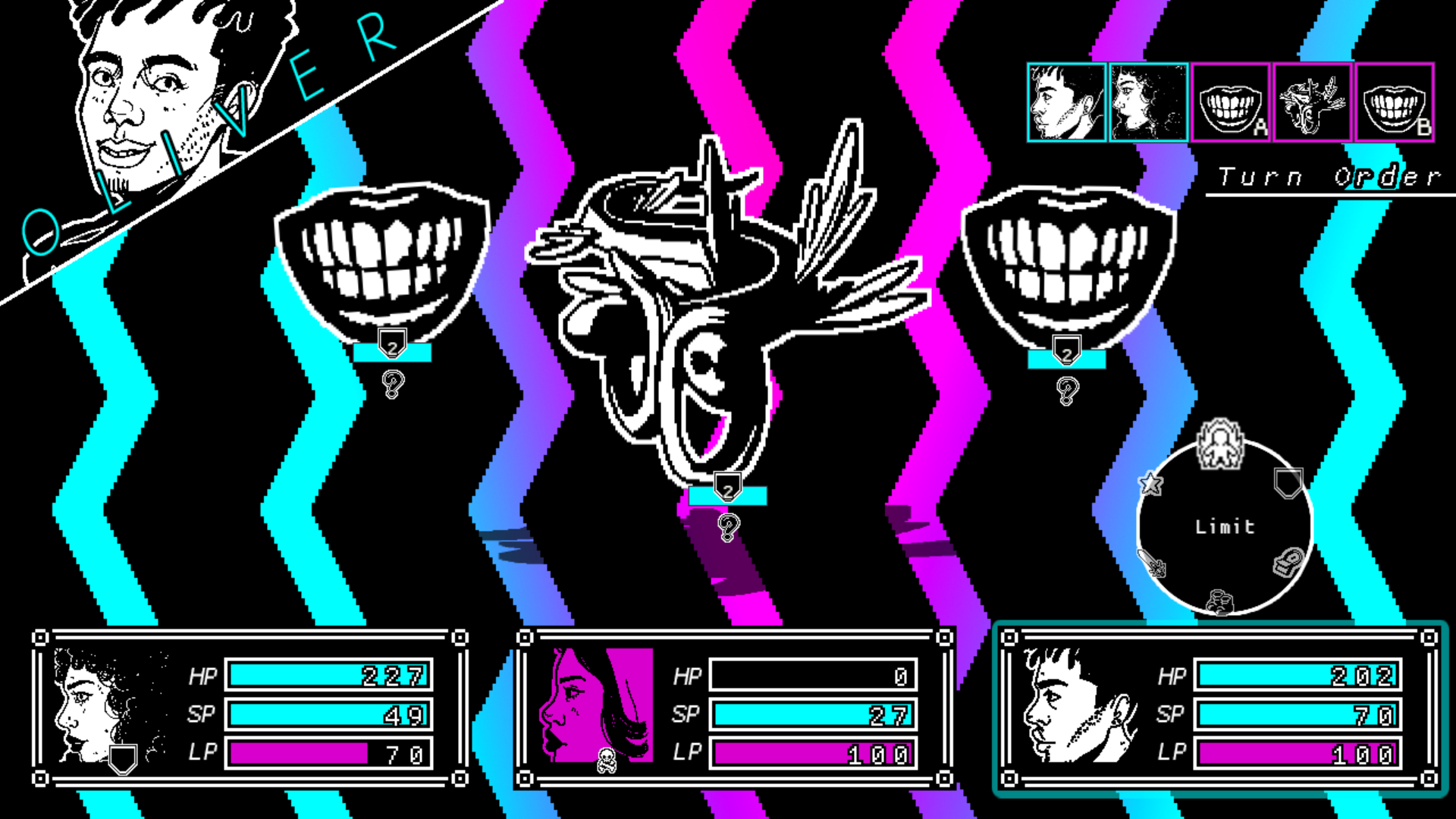
But the question remains: why? What makes funneling an otherwise well-trodden tale of disturbing mind monsters through the complex and rich black experience so vital to the growth of horror as a genre? Why then, must these developers be black in the first place in order to best convey these experiences?
The answer lies in the very nature of horror, as well as what made this demo resonant with my co-worker and myself in the first place.
Horror creates a personal relationship between the player and the character they experience the story through. Video games extrapolate on this further by allowing players to bond with the protagonist they control. This creates a more intimate relationship, which then strengthens the emotional attachment to the events at hand and therefore a stronger investment in the story and characters.
What happens then, when said characters on-screen share the same culture, race, and/or ethnicity as you? When you can create an immediate connection with them through shared life experiences that are truly authentic to your own? Fostered from that personal relationship, the connection to that character is heightened. This in turn enhances the horror as the level of intimacy between the two of you intensifies further, creating a far more powerful experience.
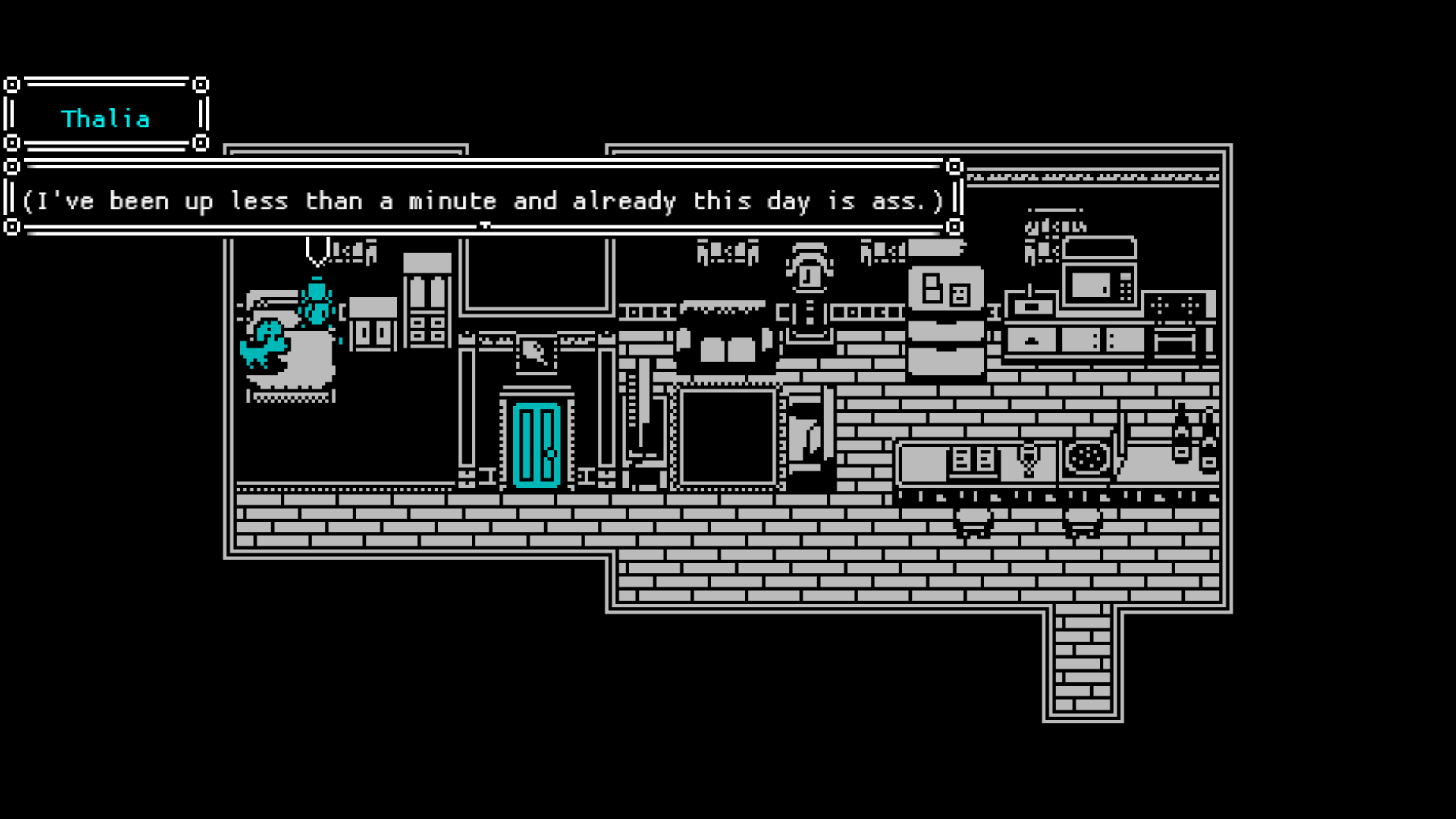
As you emerge from Thalia’s apartment and explore the greater apartment complex, the soothing and lazy hip-hop combined with the familiarity of AAVE can be immediately comforting for black players. Even the code-switching Thalia employs while interacting with her landlord is something all too familiar. It almost jarringly contrasts Thalia’s own deep discomfort as her mind betrays her repeatedly with a barrage of self-sabotage.
The black and white color palette of the apartment building is splashed with moody blues and purples, reflecting how Thalia’s perspective strips the world around her into near monochrome. The hip-hop beat shifts and becomes a tense, almost relentless, rhythm that mirrors a rapid heartbeat. This all works for Thalia to fashion a barrier between herself and what should be an otherwise friendly and cozy environment filled with familiar people.
The relationships between Thalia and her own people are flawed and human as well. She is clearly suffering from deep anxiety and depression. From an outside perspective, we can see the signs: Hours upon hours spent in bed, reusing the same outfit on the rare occasion she does venture out. Forgetting her best friend’s birthday party and having to work herself up to leave her apartment. Her constant mental berating, self insults, the evidence piles up. And yet no one else notices, or they do and ignorantly misconstrues the signs as her being cold, or weird, or simply not trying hard enough.
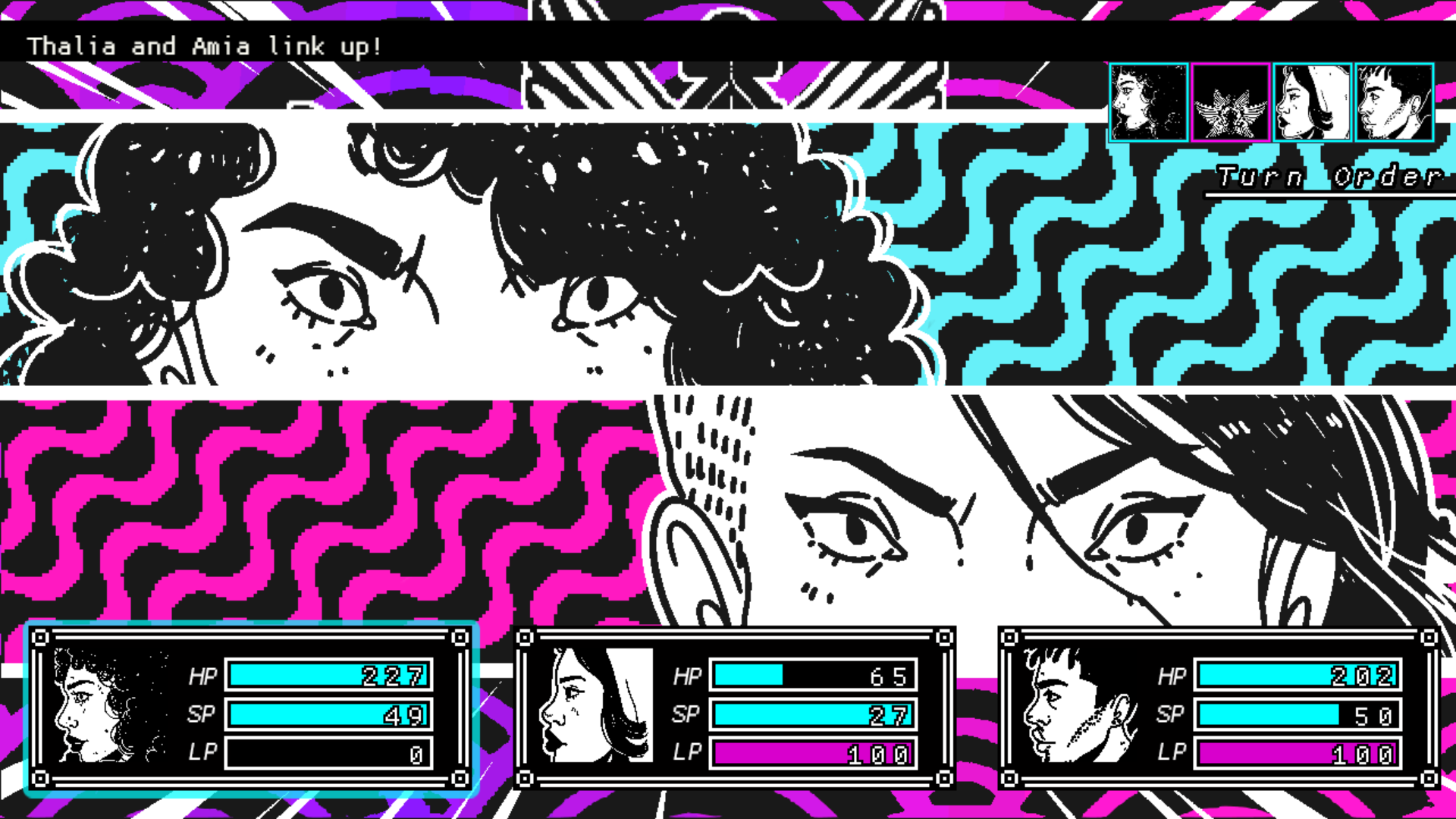
Even her close friends, whose relationships we see are mostly supportive and positive, aren’t able to pierce her dense mental shroud. Seeing not only her mental illness go virtually undiagnosed by Thalia herself but then rendered completely invisible by others, seeing that lack of education within this marginalized community, endears her to me even more. I no longer am forced to navigate a game as essentially a stranger. By the time I’m ready to fight horrible monsters in Oblivion, our bond has already been forged and I’m completely invested in her journey.
That’s the true benefit behind having black developers at the development wheel. Because in order to establish that genuine intimacy, the representation must be authentic. What made the She Dreams Elsewhere demo so special was the black culture saturating it, both in an overall sense and how it relates back to Thalia’s own mental status.
It proves that black culture and characters aren’t merely a window-dressing or hindrance to creative expression. That they can be intertwined in the narrative and gameplay to enhance and elevate the experience in bold and unique ways. And that black culture can be portrayed in flawed and complex ways — the good, bad, and everything in between — without resorting to lazy stereotypes.
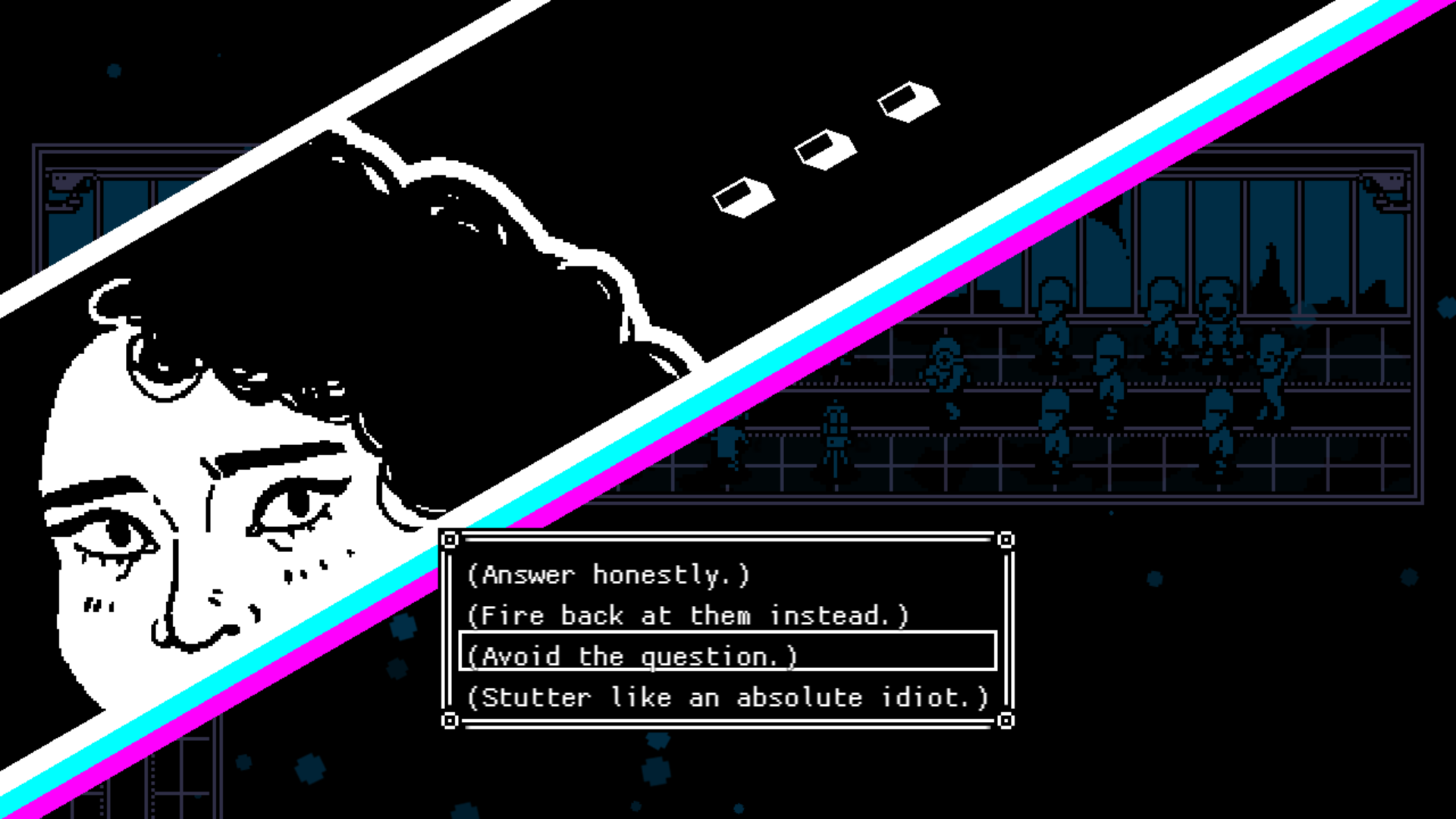
And having a black developer at the helm is what makes the experience so genuine in the first place. From the AAVE to the music to even the Roast skill, this is truly authentic, which is something seldom seen in other titles starring POC but with white developers at the helm. This authenticity is what defined the game and crafted such a moving and intimate horror experience for both me and my co-worker as we played. If even a single piece was inaccurate or offensively wrong, our immersion would have been destroyed and with it any real connection with the protagonist.
Other marginalized ethnicities, races, nationalities, and cultures would benefit just as much by having developers of those groups able to express their unique perspectives through horror. Horror offers a unique path to forge a connection and become immersed in a world and its people in ways that other video game genres couldn’t replicate. And this especially holds true for those who are often excluded from media or solely represented in damaging ways.
And as more of these unique perspectives become far more commonplace and intertwined within horror games, we could see a host of unique gameplay mechanics as well. Just as She Dreams Elsewhere features black culture’s AAVE used as weapons of power against dark forces, the possibilities in which other POC could manifest their own cultures into gameplay are endless.





